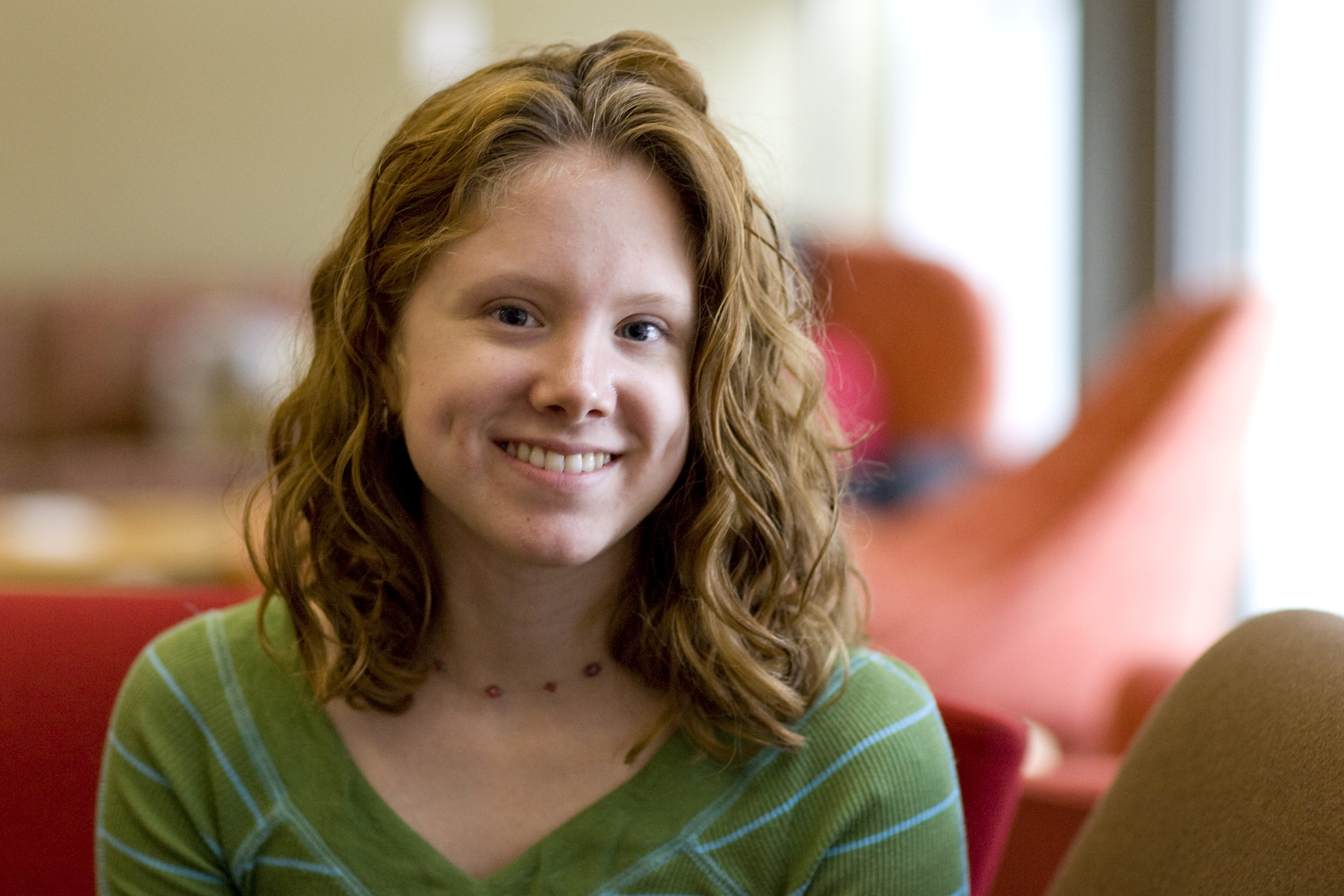February 11, 2009 — Courtney Schroeder, a fourth-year student at the University of Virginia, has received a $50,000 scholarship from the Winston Churchill Foundation of the United States.
Schroeder, 22, of South Boston, Va., is a chemistry major with a specialization in biochemistry. The scholarship will allow her to study at the University of Cambridge in Cambridge, England.
"I was shocked," Schroeder said. "I was focused on graduate schools and forgot this was a possibility."
With the Churchill Scholarship, she will defer graduate school a year so she can gain additional research experience and "meet others who are passionate about science and want to learn more about another country."
Schroeder has performed research at the Max-Planck Institute of Immunobiology in Freiburg, Germany, an interdisciplinary research institution working with diverse areas of immunobiology and developmental biology.
"I had a great time there, and it was a different environment," she said. "I learned a lot from my mentor and about diversity in research. I also learned about myself and what I am interested in."
Schroeder said she is excited about returning to England, which she has visited as a tourist. While she will not start school until the fall, she has already been assigned to a laboratory where she will be working in structural biology, studying a specific enzyme.
Lucy Russell, director of the Center for Undergraduate Excellence, predicted Schroeder will be "an influential biochemist and a leader in her field."
"Courtney has sought to share her enthusiasm for research through the Undergraduate Research Network, a student group that involves students throughout the University in research projects," Russell said. "As chair, Courtney worked to create a larger student researcher community at U.Va.”
An Echols Scholar, Schroeder has also received a Goldwater Scholarship and a Rubin and Sarah Shaps Scholarship, awarded by the Sloan-Kettering Institute. She is past chairwoman of the Undergraduate Research Network and was a teaching assistant for a general chemistry course.
"I like the experience of teaching and advising first-year students," she said. "It is rewarding to see others enjoy learning."
Schroeder is an ideal candidate for a Churchill Scholarship, said Mark Whittle, an astronomy professor and U.Va.'s liaison with the Churchill Foundation.
"She has a perfect academic record," Whittle said. "Her research abilities are outstanding; she has garnered numerous prestigious awards; she is active in research organizations and she is articulate."
The Churchill Scholarships were created at the behest of Sir Winston Churchill to allow American students to study at Cambridge and reside at Churchill College, which was chartered in 1960. The first three scholarships were awarded in 1963. The program has expanded and 14 will be given out this year. So far, eight Churchill Fellows have won Nobel Prizes.
Schroeder, 22, of South Boston, Va., is a chemistry major with a specialization in biochemistry. The scholarship will allow her to study at the University of Cambridge in Cambridge, England.
"I was shocked," Schroeder said. "I was focused on graduate schools and forgot this was a possibility."
With the Churchill Scholarship, she will defer graduate school a year so she can gain additional research experience and "meet others who are passionate about science and want to learn more about another country."
Schroeder has performed research at the Max-Planck Institute of Immunobiology in Freiburg, Germany, an interdisciplinary research institution working with diverse areas of immunobiology and developmental biology.
"I had a great time there, and it was a different environment," she said. "I learned a lot from my mentor and about diversity in research. I also learned about myself and what I am interested in."
Schroeder said she is excited about returning to England, which she has visited as a tourist. While she will not start school until the fall, she has already been assigned to a laboratory where she will be working in structural biology, studying a specific enzyme.
Lucy Russell, director of the Center for Undergraduate Excellence, predicted Schroeder will be "an influential biochemist and a leader in her field."
"Courtney has sought to share her enthusiasm for research through the Undergraduate Research Network, a student group that involves students throughout the University in research projects," Russell said. "As chair, Courtney worked to create a larger student researcher community at U.Va.”
An Echols Scholar, Schroeder has also received a Goldwater Scholarship and a Rubin and Sarah Shaps Scholarship, awarded by the Sloan-Kettering Institute. She is past chairwoman of the Undergraduate Research Network and was a teaching assistant for a general chemistry course.
"I like the experience of teaching and advising first-year students," she said. "It is rewarding to see others enjoy learning."
Schroeder is an ideal candidate for a Churchill Scholarship, said Mark Whittle, an astronomy professor and U.Va.'s liaison with the Churchill Foundation.
"She has a perfect academic record," Whittle said. "Her research abilities are outstanding; she has garnered numerous prestigious awards; she is active in research organizations and she is articulate."
The Churchill Scholarships were created at the behest of Sir Winston Churchill to allow American students to study at Cambridge and reside at Churchill College, which was chartered in 1960. The first three scholarships were awarded in 1963. The program has expanded and 14 will be given out this year. So far, eight Churchill Fellows have won Nobel Prizes.
— By Matt Kelly
Media Contact
Article Information
February 11, 2009
/content/chemistry-major-courtney-schroeder-named-churchill-scholar

